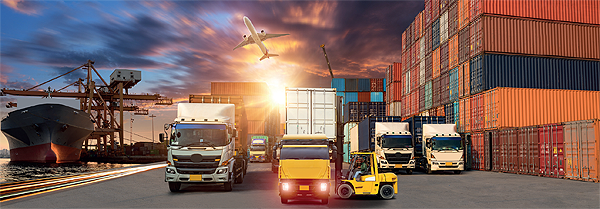
A new era?
Rarely in modern times have we seen both supply and demand be so severely and simultaneously disrupted. The complex nature of supply chains and their reliance on huge physical assets means they are not adept at dealing with global disruption and speedy transformation.
Covid-19 has been a test for the resilience of supply chains across the manufacturing and engineering sectors, but it is a test that these sectors are rising to. We are now witnessing a response from businesses which are completely reconsidering and reconfiguring their principles around production, storage and day-to-day business operations.
Global supply chains – Just in Time moving to Just in Case
The just-in-time model – which is defined by materials arriving at location just before manufacturing commences – has traditionally been the guiding principle for any manufacturer. Multi-sourcing components is after all the clear route to reducing costs, but Covid-19 has exposed the fragility of the model – which cannot cope with international travel and trade restrictions.
With repeat lockdowns across the mglobe, the idea of purchasing thousands of components from dozens of countries across every continent is unlikely to hold the attractiveness it has done for at least 200 years.
The natural question is what does this mean for manufacturing and engineering?
The rebirth of onshoring
According to McKinsey, the performance benchmark for on-time, in-full delivery is 95 per cent and low overall cost means nothing if reliability of delivery cannot be guaranteed from start-to-end. As such, forecasting, planning, manufacturing and distribution operations need to be reassessed by manufacturers to uphold this benchmark and where ‘just-in-time’ fits within it.
The principle of ‘just-in-time’ may remain if the supply chain can be onshored and contained within a country’s borders. In other words, purchasing products within your business’ land borders will become increasingly attractive. It means that the demand for ships, planes, and customs declarations is diminished drastically.
We expect to see intermodal transport begin to thrive, particularly in the UK, with freight trains also taking on a greater role in transporting components to manufacturing plants, while fleets of light-commercial vehicles will dramatically increase given that last-mile delivery is more important now than ever.
If offshore trade continues to be vulnerable to any number of government restrictions, bringing purchasing decisions onshore is arguably simpler – albeit costs may be higher.
However, a return to onshoring is not the sole change we are going to witness in the manufacturing and engineering industries.
AI and automation: buzzwords no more
For years, AI and automation have been buzzwords used to promote a forward-thinking approach. But they were part of digitalization plans that had long-lead timeframes – nestled within five-year plans and discussion about Industry 4.0.
If anything, the Covid-19 pandemic has made manufacturers realize that automation is their best friend in adjusting to the ‘new normal’ of one-way systems and social distancing because it allows machines to occupy the newly created space between humans – literal social distancing.
Meanwhile AI enables manufacturers to drive efficiency within their business in real-time, as it crunches the data on business productivity and uses this to inform decisions about overall operations. The power of AI cannot be understated: rarely before have we faced such disruption to our day-to-day lives and in the absence of any historical data sets to interpret, it is AI that can begin to digest this data and help businesses make crucial decisions at the right time.
Covid-19 could mark a new era for global trade
The Covid-19 pandemic has rewritten the rulebook on global trade – a rulebook that we have treated as sacrosanct for decades. It is the case that manufacturing and engineering are top of the list for industries to revive – governments across the board know the domestic success of these industries is one of the surest ways to mend an injured economy.
Every trend we are seeing points to the sectors being ready to embrace talent and businesses who are ready to adopt the benefits of onshoring and the unquestionable power of technology as the recovery begins.
Mark Dorman is CEO of SThree, a leading STEM recruiter. SThree is the only global pure play specialist staffing business focused on roles in STEM (Science, Technology, Engineering and Mathematics). It brings skilled people together to build the future through the provision of specialist Contract and Permanent services to a diverse client base of over 9,000 clients. SThree brands include Progressive, Computer Futures, Huxley Associates and Real Staffing Group. The Group has circa 3,000 employees in 16 countries.